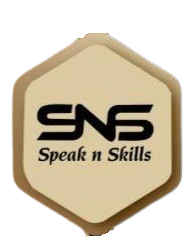Conditionals are statements that express a relationship between a hypothetical situation and a consequence that depends on that situation. They are often used to describe what might happen under certain circumstances.

Discover the Different Types of Conditionals and How to Use Them in Everyday Conversations and Writing
There are several types of conditionals in English, each with its own meaning and usage:
Zero Conditionals:
This conditional describes situations that are always true, or events that happen repeatedly under certain conditions. The zero conditional uses the present simple tense in both the if-clause and the result clause.
EXAMPLE: If you heat water to 100 degrees Celsius, it boils.
- If you heat ice, it melts.
- If it rains, the grass gets wet.
- If you mix blue and yellow, you get green.
- If you squeeze a lemon, juice comes out.
- If you freeze water, it becomes ice.
- If you add salt to water, it boils faster.
- If you don’t wear warm clothes in the winter, you feel cold.
- If you don’t water plants, they die.
- If you don’t clean your teeth, they decay.
- If you exercise regularly, you stay fit.
First Conditionals:
This conditional describes situations that are likely to happen in the future, or that could happen if certain conditions are met. The first conditional uses the present simple tense in the if-clause and the future simple tense (will + base form) in the result clause.
EXAMPLE: If it rains, I will stay at home.
- If it rains tomorrow, we’ll have to cancel the picnic.
- If I get a promotion, I’ll buy a new car.
- If you study hard, you’ll pass the exam.
- If I don’t finish this project on time, I’ll get in trouble.
- If he comes to the party, we’ll have a great time.
- If you don’t hurry, you’ll miss your flight.
- If she asks me out, I’ll say yes.
- If we leave early, we’ll avoid the traffic.
- If you give me a lift, I’ll buy you lunch.
- If they score a goal, we’ll have to work harder to win.
Second Conditionals:
This conditional describes hypothetical or imaginary situations that are unlikely to happen or that are contrary to fact. The second conditional uses the past simple tense in the if-clause and would + base form in the result clause.
EXAMPLE: If I won the lottery, I would buy a house.
- If I won the lottery, I would travel the world.
- If I had more time, I would learn a new language.
- If I were you, I would take a break.
- If we had a bigger house, we could host more guests.
- If it weren’t for the rain, we could go for a picnic.
- If I had enough money, I would start my own business.
- If I could play an instrument, I would join a band.
- If we lived closer to the beach, we would go surfing more often.
- If you spoke French, you could work as a translator.
- If I had a magic wand, I would make all my dreams come true.
Third Conditionals:
This conditional describes past situations that did not happen, or situations that could have happened differently in the past. The third conditional uses the past perfect tense in the if-clause and would have + past participle in the result clause.
EXAMPLE: If I had studied harder, I would have passed the exam.
- If I had studied harder, I would have passed the exam.
- If he had gone to bed earlier, he wouldn’t have been late for work.
- If we had left earlier, we wouldn’t have missed our flight.
- If they had listened to me, we wouldn’t be in this mess.
- If she had known about the traffic, she would have left earlier.
- If I had seen the warning signs, I would have avoided the accident.
- If they had bought a bigger car, they could have fit all their luggage in.
- If he had taken my advice, he wouldn’t be in debt.
- If I had caught the earlier train, I would have arrived on time.
- If they had hired more staff, they wouldn’t have been so busy.
FOLLOW US ON OUR FACEBOOK PAGE: https://www.facebook.com/speaknskills/
CHECKOUT OUR BLOG: https://speaknskills.com/conjunction/

